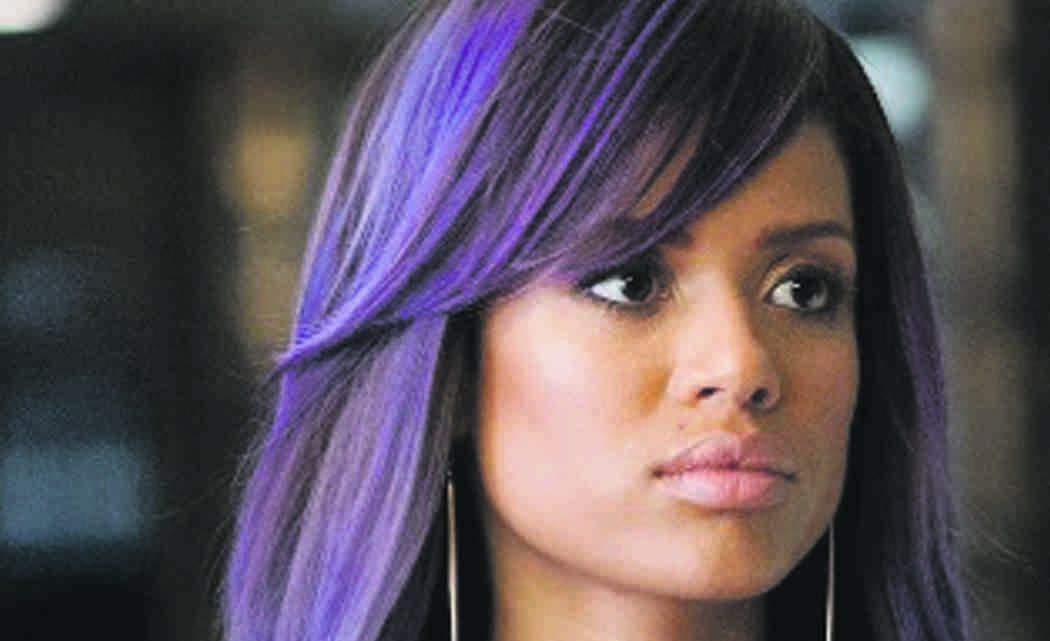Somewhere, somehow, over the years society somehow got the impression that blacks can’t fully love and appreciate each other and that we should hate ourselves. A break down has been perceived between the “angry black woman” and the “angry black man.” Therefore, when a film comes along that challenges that notion, it’s worth taking a special look at said film and its origins.
Gina Prince-Bythewood, director of Beyond the Lights, has a few thoughts on the topic. The film, which could be the next great black film classic, opens Friday.
“Every script I’ve written, I’m dealing with something. Writing is just great therapy,” said Prince-Bythewood, who wrote and directed Love & Basketball, The Secret Life of Bees. “I was struggling with my self-worth a little bit after I found out the truth about my birth and projected what would have happened if this woman hadn’t given me up; if I had been raised in this home of someone who resented me and without unconditional love.”
In Prince-Bythewood’s story, a pop singer on the rise to superstardom, Noni (played by Gugu Mbatha-Raw), is pressured to be a hyper sexualized creature so that she can sell albums. Her journey (and the film) begins with Noni’s attempted suicide, in which Officer Kaz Nicol saves her from falling. From that pivotal moment, when Kaz is the only one to “see” Noni, the film takes the audience on a roller coaster ride of self-worth, self-love, and believing that being yourself is all you need to succeed. It’s also a love story between two young, black people.
“It was a very long, laborious process to get this film made. I was coming off of the success of Secret Life of Bees and wrote this contemporary love story about the music industry and I thought it would be hot and a pretty easy sell,” said Prince-Bythewood, whose set was filled with more women than men on the crew, before premiering Beyond to audiences in Miami last week. “I was hoping to find an actor that can sing and act; thankfully, that person walked in the door, which was Gugu.”
Mbatha-Raw proved to be perfect for the role in Prince-Bythewood’s eyes, especially since she gives a great performance and beautifully sings all of her songs. Unfortunately, after pitching the story to all of the major studios and getting turned down by all except one, that one studio did not see the star that Mbatha-Raw would become. So, Prince-Bythewood parted ways with that studio and decided to work with husband/director, Reggie Bythewood, to make an eight minute teaser, which they showed to BET.
BET loved the concept and “put a few million” (the director wouldn’t say how much) toward the project, which eventually found a home with Relativity Media. The studio also loved the concept of two black leads falling in love; an idea most major studios do not share.
“We never see it, but it is imperative,” Prince-Bythewood said about the portrayal of black love on TV, film, and mainstream media. “Imaging is so important and there’s so many negative images of us out there in the world every single day on TV and in film and there’s nothing contradicting that.”
The closest we seem to get to seeing black love on screen is a romantic comedy every now and then. With the exception of “black shows” like Black-ish and some of the storylines created by Tyler Perry, audiences don’t see blacks loving each other and treating each other with respect. The last time this phenomenon was on a TV screen was in the age of The Cosby Show. It’s also the time black women were seen as human beings and not objects of feral desire for the pleasure of men (black, white, purple, whatever).
Nevertheless, despite the film’s turning a camera lens on the forced exploitation of black women, it does have a positive impact for its audience. “What I hope people get from the film I to experience a really good love story, but also that they leave (the theater) inspired to find their own voice and be authentic to themselves,” said Prince-Bythewood, who already has a sisterhood comedy in mind for her next project. “Everything that’s coming at us is about fixing us and changing us and changing who we were naturally born as. I would love for people to be able to look in the mirror and just be authentic and true to you. And, be brave enough to live in that.”













No Comment